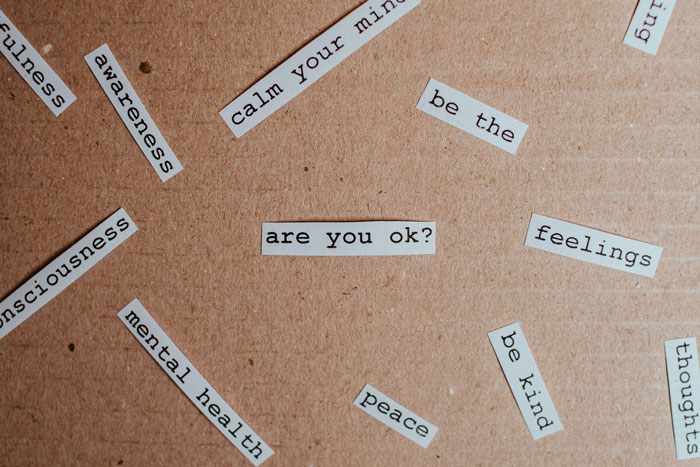
Drop off your CV/Resume
We'd love to hear from you. Send us your CV/Resume and one of our team will be in touch.

1 in 5 people will experience a mental illness during their lifetime. Every day we face challenges that can impact our mental health, particularly now when many of us are isolated from our support networks!
This week is 'Mental Health Awareness Week'. A week where charities, governments and organisations battle the stigma surrounding mental health.
But, how are they raising awareness?
In many cases, it's down to the emotive, humorous or thought-provoking work produced by Healthcare Communications Agencies!
In honour of their work, and to mark Mental Health Awareness Week, we're sharing a few of the powerful mental health campaigns from the Healthcare Communications space.
This is by no means an exhaustive list, but here are 5 campaigns that definitely got conversations started…
1. 'New Mindset' by Havas Lynx and United for Global Mental Health
In 2018, Havas Lynx partnered with four-time Academy Award-winning studio Aardman to produce a short animated film called 'New Mindset', which launched at the Tate Modern in London on World Mental Health Day (10th October).
The film, narrated by Stephen Fry, featured hard-hitting facts from The Lancet Commission on Global Mental Health and Sustainable Development, including the fact that 2 in 3 people won't receive any support or treatment for their mental illness, despite most mental health conditions being treatable.
Created to help the mental health community win support and change how mental health is both funded and stigmatised, the central message of the film is that mental ill-health is a global issue that affects everyone, everywhere. And since its release, it has had a global reach, having been played at high profile global summits including the UK Summit, Davos World Economic Forum and the Global Dubai mental health summit.
You can watch the short film here or read more about the campaign here.
2. 'Be Vocal: Speak Up for Mental Health' by Biosector 2 and Sunovian Pharmaceuticals
Biosector 2, a Syneos Health company and Sunovian Pharmaceuticals created the 'Be Vocal: Speak Up for Mental Health' initiative in 2015.
The campaign, which featured Demi Levato, brought together several advocacy groups: The Depression and Bipolar Support Alliance, The Jed Foundation, Mental Health America, the National Alliance on Mental Illness and the National Council for Behavioral Health.
Through a social media movement, a website and a documentary film, the campaign aimed to confront the continued stigma of mental health issues. But it wasn't just about raising awareness, the team behind the campaign wanted to open up the discussion, so they invited people to share their own stories on the 'Be Vocal' website - empowering adults living with mental illness to speak up when in need of help.
The documentary film, Beyond Silence, was released in 2017. It follows three different people whose lives have been transformed by speaking up for mental health.
You can watch the full-length film on the 'Be Vocal' website and have a look at the resources and support they offer here.
3. 'Every Mind Matters' by Public Health England, Freuds Health (and several other agencies)
Last year, 2019, Public Health England launched the 'Every Mind Matters' campaign. A number of agencies were involved in the project including Freuds, Wavemaker, 23red, M&C Saatchi, APS and Manning Gottlieb OMD.
'Every Mind Matters' is a platform, endorsed by the Royal College of GPs, which offers practical support to anyone suffering from mental illness. The resource allows users to take a health quiz and then produces a "mind plan" with useful tips around managing anxiety, low mood, sleep and stress - take a look here.
Over a quarter of people wait longer than six months before seeking help for their mental health, with more than half reporting that they use smoking, drinking, unhealthy eating or avoiding social situations as coping mechanisms. The platform aims to empower people to manage their symptoms earlier and stop their mental health escalating, therefore reducing pressure on clinical services.
The original campaign was a three-minute film, written by Richard Curtis and directed by Rankin. It featured various famous faces whose lives have been affected by poor mental health, including Gillian Anderson, Davina McCall, Glenn Close, Freddie Flintoff, Professor Green and Nadiya Hussain. As well as a Voiceover from The Duke and Duchess of Cambridge and the Duke and Duchess of Sussex. Here's a link.
The film was broadcast simultaneously across ITV, Sky channels, Channel 4 and Channel 5. It was so successful that within minutes the 'Every Mind Matters' website crashed due to the enormous surge in traffic!
In April of 2020, a new short film was released, also voiced by The Duke and Duchess of Cambridge, with advice to help people manage the impact of coronavirus, the lockdown and the economic impact of the pandemic on their mental health.
4. 'Silence Sucks' by Concentric Health and Sage Therapeutics
This is definitely the most controversial campaign on our list! The 'PDD Silence Sucks' campaign from Sage Therapeutics and Concentric Health aimed to raise awareness of the mental health needs of new mums, specifically, postpartum depression.
Postpartum depression is the most common medical complication of childbirth, affecting 10% to 20% of women in the U.S., yet 50% of cases go undiagnosed by healthcare professionals.
This campaign aimed to break the culture of silence surrounding postpartum depression and overcome the negative stigma associated with the illness and its depiction in popular culture.
However, the imagery they used caused quite a stir, the campaign, launched during the annual American College of Obstetricians and Gynecologists conference in 2017, featured women sucking on "silencing" pacifiers. Many women didn't feel the tone was right and that the images were "misguided and infantilizing", you can read more about the controversy here.
Nevertheless, the campaign was named Best in Show (or campaign of the year) at the 2018 Healthcare Marketing Impact Awards, and it certainly got a conversation about PDD started. Not only was it featured across numerous news outlets but the "Silence Sucks" educational website saw a more than 1,000% increase in traffic during the launch month!
5. 'In your mate's corner' by Ogilvy & Mather London and Time to Change
In 2017, O&M London and Time to Change kicked off a 5-year campaign aimed at shifting attitudes toward mental health throughout England.
According to the charity's research, there has been a positive change in the way mental health is viewed and talked about in England, with 3.4 million people having improved attitudes. However, there is still a persistent gap between the attitudes of men and women, with men being less likely to discuss their own experiences.
The campaign, led by Mind and Rethink Mental Illness, although primarily aimed at men, promote a universal message. It was launched with a short, high-impact film featuring three heroic 'corner men'; regular guys who are in a mate's corner when he really needs them.
With a more comical approach than many of the campaigns on this list, it urges men to recognize how their attitudes and behaviours can influence others' experiences of mental health problems - & that being in a friend's corner can make all the difference.
In 2018, 'Be in your mate's corner' was followed up with #AskTwice, after further research from the charity revealed that 78% of us would tell friends and family we are 'fine', even if struggling with a mental health problem. To tackle this, Time to Change urged people to ask again if they suspect a friend is struggling with their mental health. They believe that the simple act of asking again, with interest, shows a genuine willingness to talk and listen.
Take a minute to view the 'In your mate's corner' video here and you can watch the #AskTwice campaign here.
Mental illness will touch most of us at some point in our lives, whether directly or indirectly. We've still got a long way to go but with powerful work like this Healthcare Communications is making a tangible impact in the fight to improve global mental health.
Are there any exceptional campaigns that we've missed? Let us know in the comments.